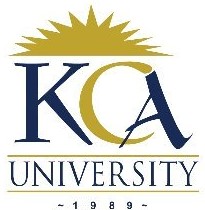 UNIVERSITY EXAMINATIONS: 2012/2013
UNIVERSITY EXAMINATIONS: 2012/2013
THIRD YEAR EXAMINATION FOR THE BACHELOR OF
SCIENCE IN INFORMATION TECHNOLOGY
BIT 4305 DISTRIBUTED MULTIMEDIA SYSTEMS
DATE: DECEMBER, 2012 TIME: 2 HOURS
INSTRUCTIONS: Answer Question ONE and any other TWO
QUESTION ONE
a) What are the key distinctions between multimedia data and more conventional
types of media? (4 Marks)
b) Explain key issues a multimedia system have to deal with when handling
multimedia data? (6 Marks)
c) Differentiate between Application level Quos and System level Quos (4 Marks)
d) i. What is the distinction between lossless and lossy compression?
ii. What broad types of multimedia data are each most suited to? (6 Marks)
e) What is meant by the terms static media and dynamic media? Give two
examples of each type of media. (4 Marks)
f) Define the term scalability and explain any three factors influencing scalability
(6 Marks)
QUESTION TWO
a) What is MIDI? How is a basic MIDI message structured? (6 Marks)
b) In what ways can MIDI be used effectively in Multimedia Applications, as
opposed to strictly musical applications? (8 Marks)
c) How can MIDI be used with modern data compression techniques? Briefly
describe how such compression techniques may be implemented. (6 Marks)
QUESTION THREE
a) Explain any four requirements of a multimedia server (8 Marks)
b) Define the term scalability and explain any three factors influencing scalability
(4 Marks)
c) Distinguish between multimedia conferencing and video conferencing (4 Marks)
d) Describe the concept admission of control in Distributed multimedia system
(4 Marks)
QUESTION FOUR
a) State and explain any four characteristics of Multimedia Operating system
(8 Marks)
b) Differentiate between middleware and media ware giving an example in each case
(4 Marks)
c) Outline any two limitations in workstations operating systems (2 Marks)
d) Describe the following resource management techniques
i. Optimistic allocation scheme
ii. Pessimistic allocation scheme (6 Marks)
QUESTION FIVE
a) What advantage does arithmetic coding offer over Huffman coding for data
compression? (4 Marks)
b) Clearly explain an algorithm for arithmetic decoding (8 Marks)
c) In a digital signal processing system, what are meant by block and sample-by sample
processing. Give one example of an application of each type. (8 Marks)
